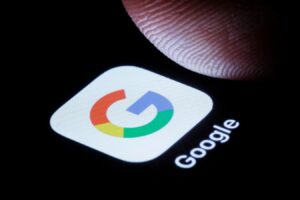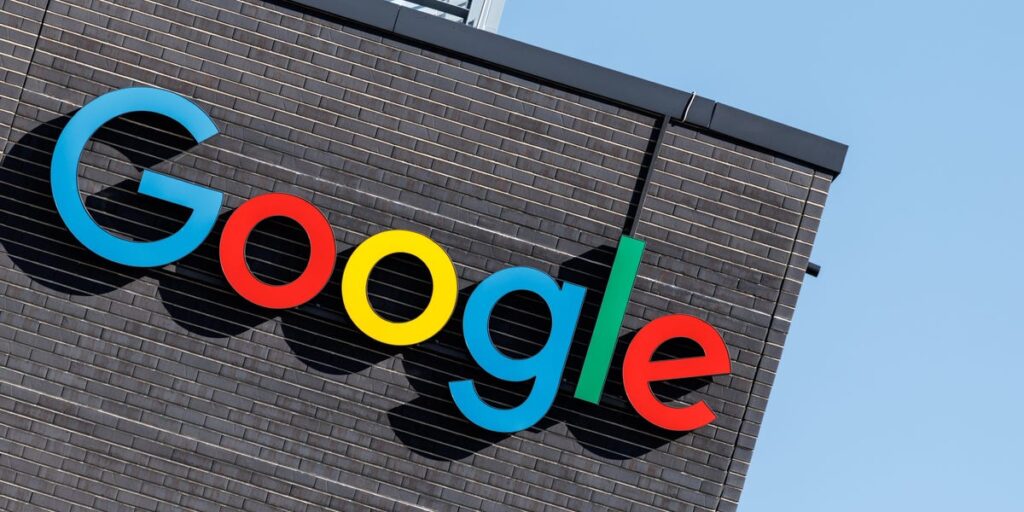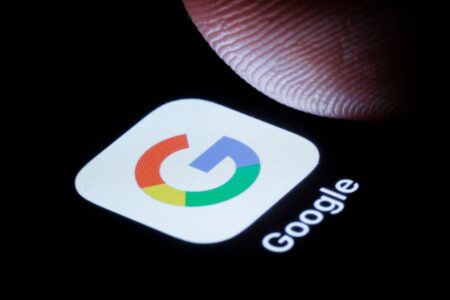Alphabet, the parent company of Google and YouTube, reported its first-quarter earnings Thursday after the market close, exceeding initial revenue estimates and sending shares up by more than 4% in after-hours trading.
Google CEO Sundar Pichai said in a statement that the company’s “strong Q1 results, which reflect healthy growth and momentum across the business,” reflect its “unique full stack approach to AI.”
“This quarter was super exciting as we rolled out Gemini 2.5, our most intelligent AI model, which is achieving breakthroughs in performance and is an extraordinary foundation for our future innovation,” said Pichai in the earnings report. “Search saw continued strong growth, boosted by the engagement we’re seeing with features like AI Overviews, which now has 1.5 billion users per month.”
Alphabet Inc., comprised of Google and a collective of companies called Other Bets, held a call with investors following the earnings report.
During the earnings call with investors, Philipp Schindler, Google’s chief business officer, said that AI Overviews could become a major revenue driver.
“Q1 marked our largest expansion to date for AI overviews, both in terms of launching to new users and providing responses for more questions,” said Schindler.
“For AI overviews, overall, we continue to see monetization at approximately the same rate, which gives us a strong base in which we can innovate even more,” he added.
Anat Ashkenazi, chief financial officer of Alphabet, said that most of the $17.2 billion in capital expenditure for the quarter went into technical infrastructures “with the largest component being investment in servers, followed by data centers” to support growth across Google services, Google Cloud, and Google DeepMind.
On top of that, Ashkenazi confirmed that Alphabet is still committed to investing $75 billion over the course of the year in AI, despite possible headwinds like tariffs that could hit advertisement revenue.
Thomas Monteiro, senior analyst at Investing.com, said in a note that Alphabet has “delivered a sound response to those questioning the solidity of the search business” amid increasing AI demand.
“When you combine the numbers seen today with Alphabet’s also solid cloud performance, it leaves few doubts about the company’s leading position in the AI search revolution,” said Monteiro.
Here are the key numbers for the fourth quarter compared to analysts’ estimates compiled by Bloomberg:
- Earnings per share: $2.81 vs. $2.01 expected
- Revenue: $90.23 billion vs. $89.1 billion expected
- Google advertising revenue: $66.89 billion vs. $66.39 billion expected
- YouTube advertising revenue: $8.93 billion vs. $8.94 billion expected
- Google Cloud revenue: $12.26 billion vs. $12.31 billion expected
Thursday’s earnings call also comes as Alphabet navigates increased scrutiny from federal regulators. The Justice Department and several states filed an antitrust lawsuit against Google in 2020. Four years later, a federal judge ruled that Google spent billions to make its search engine the default on iPhones, Android devices, and web browsers.
“After having carefully considered and weighed the witness testimony and evidence, the court reaches the following conclusion: Google is a monopolist, and it has acted as one to maintain its monopoly,” District Judge Amit Mehta wrote.
This month, Judge Leonie Brinkema of the US District Court for the Eastern District of Virginia ruled that Google holds an illegal monopoly in specific online advertising markets.
Brinkema wrote in her ruling that the Justice Department and states that filed an antitrust lawsuit against Google proved the company “willfully engaged in a series of anticompetitive acts to acquire and maintain monopoly power in the publisher ad server and ad exchange markets for open-web display advertising.”
“For over a decade, Google has tied its publisher ad server and ad exchange together through contractual policies and technological integration, which enabled the company to establish and protect its monopoly power in these two markets,” Brinkema wrote.
Google and the Justice Department are now in the middle of a remedies trial related to the search engine ruling. Both parties will make arguments before a judge determines the appropriate market remedy. Google, for its part, is trying to avoid being forced to divest certain products, like the Chrome browser.
Read the full article here
















